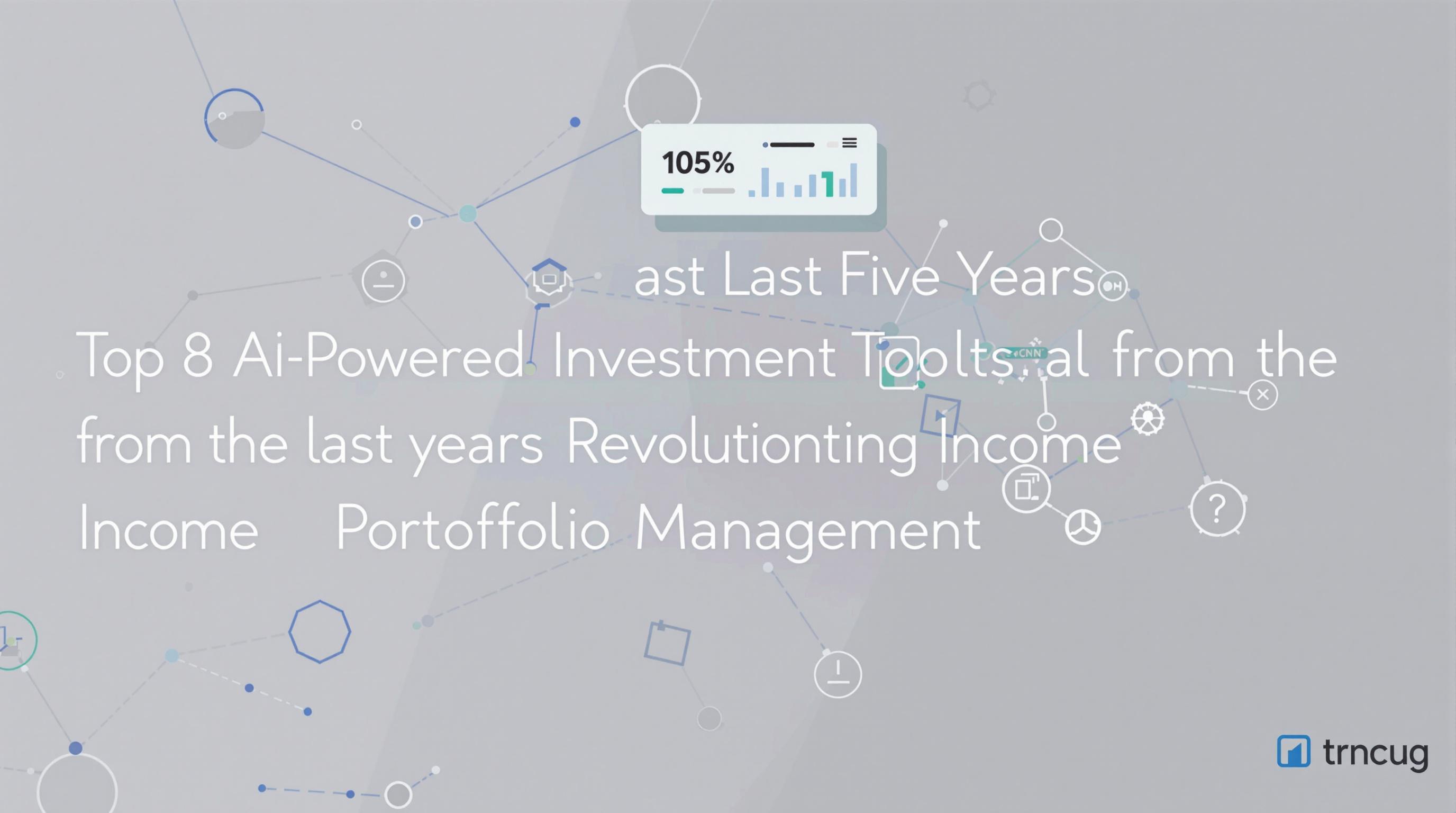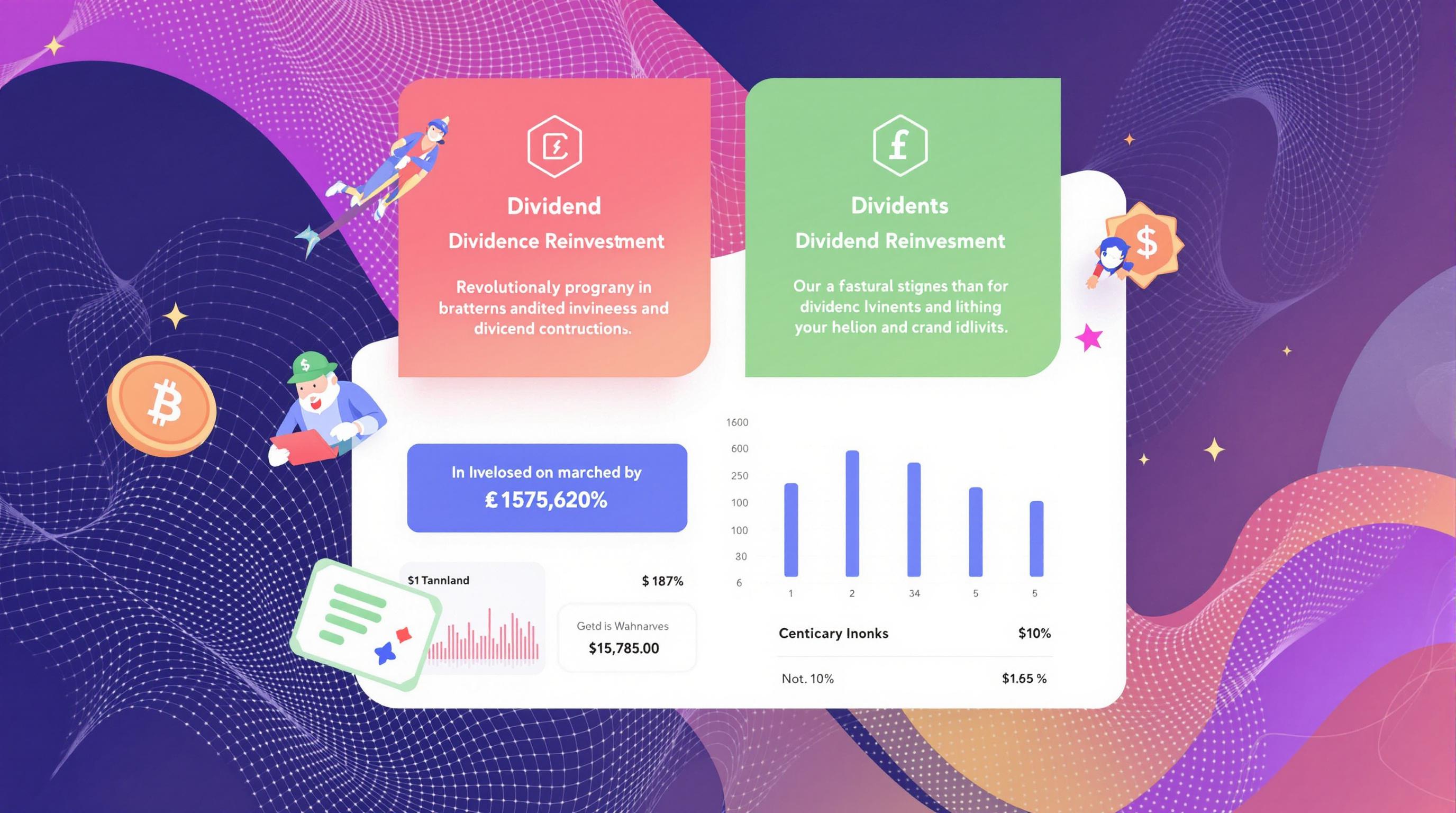Related Articles
- Top 6 Quantitative Hedge Funds Launched Since 2019 That Challenge Traditional Diversification Models
- Top 8 Cutting-Edge Retirement Income Vehicles From the Last Five Years Revolutionizing Financial Freedom
- Uncovering the Role of Behavioral Biases in Roth Conversion Decisions and Their Impact on Long-Term Wealth
- Top 6 Revolutionary Dividend Reinvestment Platforms Launched Since 2019 Redefining Passive Income Growth
- Top 7 Breakthrough Retirement Income Platforms Launched in the Last Five Years Compared and Ranked
- The Untold Influence of Cultural Artifacts on Expanding Investment Horizons and Mitigating Financial Risks
Top 8 AI-Powered Investment Tools from the Last Five Years Revolutionizing Income Portfolio Management
Top 8 AI-Powered Investment Tools from the Last Five Years Revolutionizing Income Portfolio Management
Top 8 AI-Powered Investment Tools from the Last Five Years Revolutionizing Income Portfolio Management
1. Betterment: Robo-Advisory Pioneers
Betterment has emerged as a frontrunner in employing AI to streamline portfolio management. Launched more than five years ago, its machine learning algorithms have evolved considerably, offering personalized portfolio recommendations to maximize income and mitigate risk. The platform continuously adjusts asset allocation based on market data and individual investor goals.
Betterment’s AI-driven approach allows for tax-efficient strategies such as tax-loss harvesting and dividend reinvestment tailored specifically to income-focused investors. This automation reduces emotional biases that typically hinder portfolio performance.
Industry reports from Morningstar highlight Betterment's ability to lower expense ratios while delivering competitive returns, making it a popular choice for retail investors aiming for steady income streams.[Source: Morningstar, 2023]
2. Wealthfront: Advanced Tax Optimization
Wealthfront is renowned for integrating AI and big data analytics to optimize portfolio income and tax outcomes. Its software examines an investor’s entire financial picture using predictive analytics to recommend tax-savvy investment moves.
The platform uses AI to automate direct indexing, which can increase tax efficiency and boost after-tax income yields. This technology fragments large indexes into smaller subsets to harvest losses more effectively, enhancing overall portfolio performance.
Studies have demonstrated that such AI-powered tax optimization can increase after-tax returns by 1-2%, a significant boost for income-driven investors seeking long-term capital preservation.[Source: CFA Institute, 2022]
3. Kavout: Quantitative Screeners with AI Insights
Kavout leverages machine learning models trained on massive datasets, including financial statements and alternative data, to evaluate stocks for income portfolios. Its AI-driven “K Score” rates securities based on multi-factor models that capture momentum, value, and volatility.
Income investors benefit especially from Kavout’s ability to identify stable dividend payers with strong cash flow indicators, enhancing the reliability of income streams. The platform’s algorithm adapts to changing market cycles, helping to avoid yield traps.
Financial analysts note that Kavout’s AI-enhanced screening accelerates decision-making, allowing portfolio managers to quickly reposition holdings in response to evolving economic conditions.[Source: Forbes Technology Council, 2021]
4. SigFig: Personalized AI Portfolio Management
SigFig applies AI to deliver personalized investment advisory services with a strong focus on income generation. The platform’s algorithms factor in risk tolerance, income needs, and life stages to build dividend-focused portfolios aligned with investor objectives.
SigFig’s use of AI-driven scenario analysis helps project multiple income outcomes and adjust holdings proactively, which is especially valuable during volatile market periods. The service offers low fees and integrates seamlessly with existing brokerage accounts.
Research from fintech forums shows SigFig's emphasis on dividend yield optimization and risk balancing leads to enhanced portfolio stability and improved income predictability.[Source: Finextra, 2020]
5. BlackRock Aladdin: Institutional AI Powerhouse
BlackRock’s Aladdin platform incorporates artificial intelligence to provide asset managers with comprehensive risk analytics and portfolio simulation tools. Though initially targeting institutional investors, its influence is extending towards income portfolio management strategies across the board.
Aladdin’s AI continuously scans global economic indicators and asset correlations to model income variability and liquidity risk. This helps managers optimize portfolios that can sustain stable income under diverse economic scenarios.
Industry whitepapers credit Aladdin with enhancing decision-making quality and enabling sophisticated stress testing, which supports more resilient income-focused investment portfolios.[Source: BlackRock, 2023]
6. Zest AI: AI Lending Data Enhancing Income Investments
Zest AI primarily focuses on credit underwriting, but its AI models have significant implications for income investing in fixed income and debt instruments. By using AI to assess borrower risk more precisely, the platform improves selection for bond portfolios.
Better risk assessment enables income portfolio managers to allocate capital more confidently to high-yield bonds with controlled default risks. This reduces volatility and improves predictability of income returns.
According to research published in the Journal of Financial Data Science, AI-enhanced credit scoring models like Zest AI contribute to higher risk-adjusted returns in fixed income asset classes.[Source: JFDS, 2022]
7. TipRanks: AI-Driven Analyst Ratings and Sentiment
TipRanks aggregates and analyzes thousands of analyst reports, news sentiments, and social media posts using natural language processing to assist income investors. Its AI algorithms summarize complex data into actionable insights on dividend-paying stocks and income ETFs.
Investors use TipRanks to avoid low-yield traps and identify companies with sustainable payout ratios and positive analyst sentiment. This AI-powered filter helps maintain portfolio income quality and growth potential.
Market research indicates TipRanks improves investor confidence by providing transparent sentiment indicators that correlate with subsequent income performance.[Source: TipRanks, 2024]
8. AlphaSense: AI-Powered Research Engine
AlphaSense’s AI-driven document search platform revolutionizes how portfolio managers and analysts access research and SEC filings related to income-generating assets. Its semantic analysis capabilities highlight relevant dividend announcements, earnings calls, and credit rating changes.
This rapid insight extraction allows income portfolio managers to respond more promptly to data points impacting income streams. AI scanning helps maintain a forward-looking stance crucial for identifying emerging risks or opportunities.
Studies from the Harvard Business Review mention AlphaSense as a key technology that enables data-driven investment decisions and enhances income portfolio responsiveness.[Source: HBR, 2023]
9. QuantConnect: Open-Source AI Algorithmic Trading
QuantConnect offers an open platform where developers and investors build AI-driven trading algorithms that can include income optimization strategies. Traders can backtest dividend capture and yield enhancement models using historical data.
Its collaborative AI environment fosters innovation, allowing income portfolio managers to implement custom strategies that adjust dynamically to market conditions and dividend payout changes.
QuantConnect’s transparency and access to diverse datasets empower investors to harness AI for income growth with greater control and lower costs.[Source: QuantConnect, 2022]
10. Sigmoid Analytics: AI-Powered Risk and Return Forecasts
Sigmoid Analytics applies AI to model risk-adjusted returns for income portfolios by analyzing complex market variables and macroeconomic indicators. Its predictive analytics tools help investors balance yield target with acceptable risk levels.
The firm’s AI models send real-time alerts about shifts in credit or interest rate environments that may impact income stability, enabling proactive portfolio adjustments.
Case studies indicate Sigmoid’s technology improves portfolio resilience, helping income investors safeguard returns against downturns while capitalizing on yield opportunities.[Source: Sigmoid Analytics, 2023]




